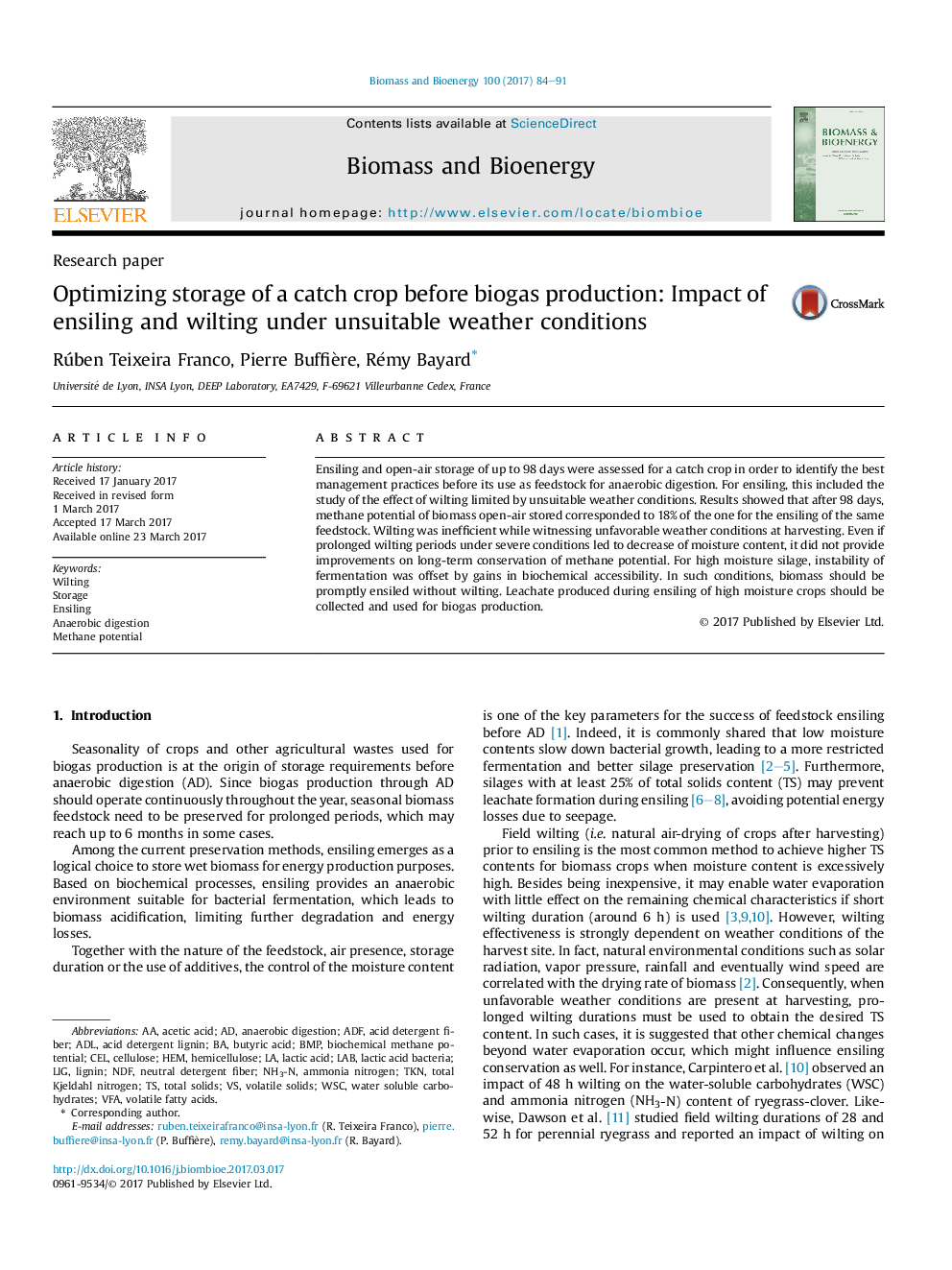| Article ID | Journal | Published Year | Pages | File Type |
|---|---|---|---|---|
| 4996252 | Biomass and Bioenergy | 2017 | 8 Pages |
â¢Ensiling is a far more appropriated conservation method than open-air storage.â¢Wilting is ineffective if weather conditions are unfavorable.â¢Biomass should be promptly ensiled without wilting.â¢Instability of high moisture silage is offset by gains in biochemical accessibility.â¢Leachate produced during ensiling should be collected for biogas production.
Ensiling and open-air storage of up to 98 days were assessed for a catch crop in order to identify the best management practices before its use as feedstock for anaerobic digestion. For ensiling, this included the study of the effect of wilting limited by unsuitable weather conditions. Results showed that after 98 days, methane potential of biomass open-air stored corresponded to 18% of the one for the ensiling of the same feedstock. Wilting was inefficient while witnessing unfavorable weather conditions at harvesting. Even if prolonged wilting periods under severe conditions led to decrease of moisture content, it did not provide improvements on long-term conservation of methane potential. For high moisture silage, instability of fermentation was offset by gains in biochemical accessibility. In such conditions, biomass should be promptly ensiled without wilting. Leachate produced during ensiling of high moisture crops should be collected and used for biogas production.
